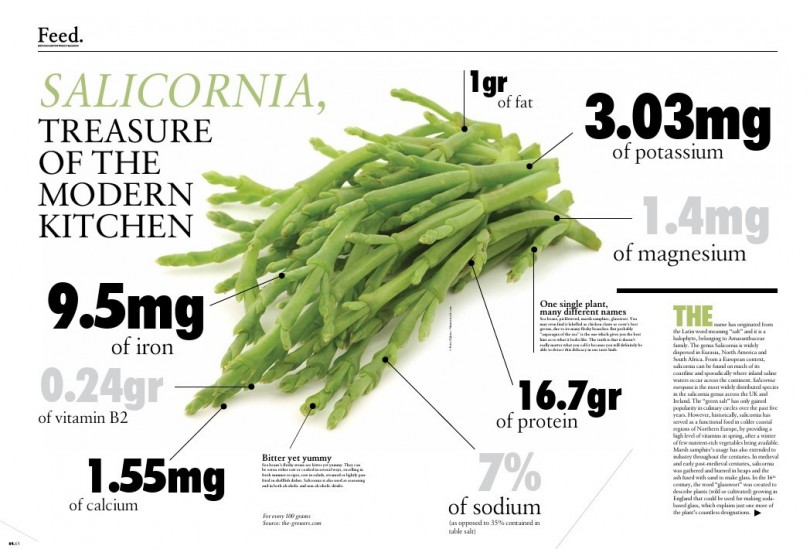At school, we were taught there were four basic taste receptors: sweet, sour, bitter and salty. However, some years ago in Japan, a fifth one was identified in the central part of the tongue. It is called umami and means “delicious”. Curiously, one of the characteristics of sea asparagus is that savoury taste that acts as a natural flavour booster. Its texture, structure and morphology conjoin to that very special finishing touch in so many dishes salicornia is now famous for adding an extra twist in flavour.
Yet, salicornia’s food potential transcends its unique taste. The plant’s nutritional value and medicinal benefits are impossible to ignore. It is mostly comprised of complex carbohydrates and low in fat and calories. Salicornia is an excellent source of vitamins, in addition to being rich in minerals, calcium, iodine and iron. From a medical and pharmacological standpoint, several species of the genus salicornia have different biological activities such as, for example, antioxidant, antibacterial, anti-inflammatory, anti-tumour properties.
